|
|
||||||||
|
Pro Tools
FILMFESTIVALS | 24/7 world wide coverageWelcome ! Enjoy the best of both worlds: Film & Festival News, exploring the best of the film festivals community. Launched in 1995, relentlessly connecting films to festivals, documenting and promoting festivals worldwide. Working on an upgrade soon. For collaboration, editorial contributions, or publicity, please send us an email here. User login |
Essential Filmmaking: An Interview With Legendary Polish Director Jerzy Skolimowski
Jerzy Skolimowski is a busy man these days. The Polish director's latest film Essential Killing made headlines this autumn when it won the Special Jury Prize at the Venice Film Festival, and the film's lead, Vincent Gallo, took the prize for best actor. The film was released in Poland in October, and audiences have been filling cinemas to see what is admittedly a unique film in terms of story and style. In the following interview, Mr. Skolimowski discusses the origins of the film, the funding process, his thoughts about contemporary cinema, and opportunities for young Polish filmmakers to reach wider international audiences.
Robert Bodrog: You've had a very successful and distinguished career as a film director, actor and also as a painter. You don't need to prove yourself, your talent, to anyone. What was it about the subject matter of Essential Killing that made you want to tell this story?
Jerzy Skolimowski: With Four Nights With Anna a couple of years ago, I managed to do a pretty good movie. And I managed to shoot it all around my house in Mazuria. I live in a forest. And that worked. So I thought maybe this formula can be repeated. Maybe I can stay at home while shooting, I don't need to be driven to the locations. So I was looking for a subject. I knew there was a rumor about CIA planes landing in Szymany airport, which is very close to my house. But since it was a heavy political subject, I said no, no, this is not for me. Until one night, one winter night, I was driving my car. Although it's a very safe, solid four-wheel drive, it skidded [on the road] and honestly, I stopped inches from the edge of a very big slope down. If I had gone down there, I would be probably dead. Then I realized I was next to Szymany airport. Like, a mile from there. And I thought, if that could happen to me, it could easily happen to any of those vehicles they were driving in the winter. Forget about politics, you know. I want to make a movie about a guy who, in those circumstances, manages to escape, runs into the forest barefoot, in chains, in overalls, and this is my film.
RB: And you could shoot it close to your house.
JS: But then, the project got bigger and bigger. I thought, I definitely need a lot of snow. And the snow is never guaranteed in Poland, so I got the Norwegian co-producer, because, you know, in Norway snow is the national product (laughs). Then I thought the Middle East scenes should be shot there, so I got the Israeli partner as well, and we shot the whole opening sequence in Israel.
RB: What was the total budget for the film?
JS: You see, the original project that I was supposed to shoot around the house was 3 million zloty [approximately 750,000 euros], but then it grew to over 3 million euros.
RB: Was it difficult to finance this movie, given its non-mainstream subject matter? Was it difficult to find investors or co-producers?
JS: Surprisingly easy. Because I had the seed money from the Polish Film Institute. I had around 40% of the [original] budget from them. With such money, I could easily approach the Norwegian Film Institute, the Irish Film Board, the Hungarian Film Board. So practically I got like 70-75% from public money. For the remaining 25% I got some partners here and there, and it was a surprisingly fast job. On top of that, I got [funding from] Eurimage.
RB: To what extent does ambiguity play in the story? Because, as you tell the story, the audience doesn't know if Mohammed, the protagonist, who's never named in the film, is actually a terrorist, if he's committed any crime, or is guilty of anything.
JS: Exactly. That was the point. I wanted to make it absolutely clear that there are two possibilities. Either he is the wrong man in the wrong place at the wrong time, just caught by circumstances. Or, is he part of a plot, making a trap for those Americans? So it works both ways. And for me, it doesn't matter. Because my story isn't about a “guilty” man or an “innocent” man. It's a story about a man in such circumstances, who's turning into a wild animal.
RB: Why did you choose Vincent Gallo for the lead character in the film? What was it about him, in terms of his talent and previous acting work, that influenced your casting choice?
JS: It happened one day last year in Cannes. I was there two years ago with my film Four Nights With Anna, which opened the Director's Fortnight. And last year, the opening film was Francis Ford Coppola's Tetro [in which Gallo starred]. Before I went to the cinema, I met with my friend Jeremy Thomas, who produced my film The Shout. Then, walking out of the cinema, I saw Gallo coming towards me. And we've known each other for years. We even acted together in one Hollywood movie called L.A. Without a Map. Anyway, I noticed a certain animalistic movement of his body. And I thought, this is good for the part. So, out of instinct, I stopped him and said Vincent, I have a script which you should read. And he asked, do you have it here? I said, yes. Then give it to me, he said. Two hours later, literally, two hours later, he called me and said, this is phenomenal. This is a great script. I want to do it! I love to run barefoot in the snow! I'm from Buffalo. It's always cold there!
RB: And that was that?
JS: I thought he may have been exaggerating a little bit. Then I told him, listen, this is May now. If we shoot it, we'll shoot it in the winter. So, if you're serious, start to grow hair and a beard. And he did. Two weeks later he called me and said, I have two inches of beard already!
RB: There is only one female character in the film and she is a deaf mute. How did Emmanuelle Seigner come to be cast in the film?
JS: You know she's the wife of my very close friend Roman. And we were always planning on doing something together. But because I stopped filming for seventeen years, it never happened. But this time, I said, I have a part for you. Of course, yes, she said, we'll do it. So, she played the part.
RB: You lived in the United States for many years. In your opinion, what is the biggest difference between contemporary European cinema and American “Hollywood” cinema in terms of story telling, themes and technique, compared to when you were beginning your career?
JS: Well, obviously, the Hollywood influence did its job. The European cinema has changed since the sixties, when we were all part of the Nouvelle Vague, and we were really making quite different films. Now, it's the special effects, the fast cutting, which came from MTV I guess, and everybody is using it to a ridiculous extent, which I hate, actually. You know, my film is nicely cut, in a much smoother pace. I must say, I enjoyed that difference, when the European films were really different from the mainstream Hollywood. It's not that way anymore. So I think my film is quite unique on the [contemporary] scene now. Let's face it. It's different.
RB: What do you think the future looks like specifically for Polish cinema? Do you have any advice for young Polish directors, in terms of the stories they tell, or how they can reach a wider global audience, like you have in your work over the years?
JS: Today they have a really good chance. Because the Polish Film Institute is really helping young people making their first or second film. There are so many young filmmakers now being supported by the institute, so they can have a much easier start than some years ago. As for me advising them on how to make it in the world-- they should look for the right subjects. Like when it became known that I was making this film, everybody was saying, yeah, that subject was lying there on the floor for years, and no one picked it up! So just pick up the right thing. And that's it.
RB: In the film at one point, Gallo's character is riding a white horse. In literature and mythology in different cultures, white horses symbolize many different things. In your film, does the white horse represent something in particular? What were you trying to do with that?
JS: People look at that as a metaphor. Alright, if they see it as a metaphor, let it be. But my idea was purely “picture”. White snow, white horse, black forest, red blood. That was it. I looked at it as a painter. And if I make the horse a different color, it wouldn't work. So, to see the blood on the horse, it has to be white. That's clear. So, the metaphor is the cherry on top of the cake. To me, the most important thing was to see the blood on the horse's neck.
RB: So it was simply an artistic choice in terms of composition.
JS: Exactly.
RB: Tell me about your next project. What is the next film you would like to make?
JS: None. Honestly. Now I'm going on the festival circuit [to the U.K., Greece, Spain, France, then Argentina]. Once it's through, I want to go back to painting. And I'm not thinking about movies at all. If it comes, it comes. I'll be busy painting.
22.12.2010 | Robert Bodrog's blog Cat. : actor Buffalo Cannes Cannes Central Intelligence Agency Cinema of Poland co-producer Director Emmanuelle Seigner EMMANUELLE SEIGNER Entertainment Entertainment Essential Killing Essential Killing European cinema film director , actor Films finance France Francis Ford Coppola Greece Human Interest Human Interest Israel Jeremy Thomas Jerzy Skolimowski Jerzy Skolimowski Jerzy Skolimowski L.A. Middle East MTV Norway Norwegian Film Institute painter Person Career Poland Polish cinema Polish Film Institute Quotation Robert Bodrog Spain Szymany airport The European cinema The Shout the Special Jury Prize the Venice Film Festival United Kingdom United States Venice Film Festival Vincent Gallo Vincent Gallo PEOPLE
|
LinksThe Bulletin Board > The Bulletin Board Blog Following News Interview with IFTA Chairman (AFM)
Interview with Cannes Marche du Film Director
Filmfestivals.com dailies live coverage from > Live from India
Useful links for the indies: > Big files transfer
+ SUBSCRIBE to the weekly Newsletter Deals+ Special offers and discounts from filmfestivals.com Selected fun offers
> Bonus Casino
User imagesAbout Robert BodrogThe EditorUser contributions |
||||||



















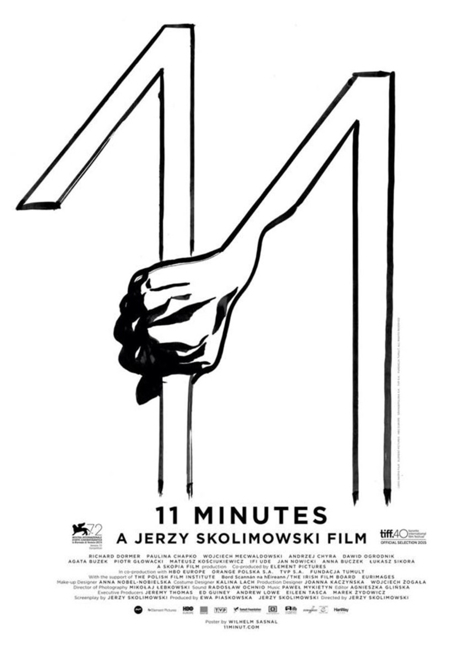
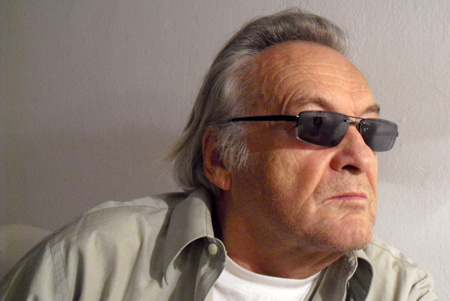
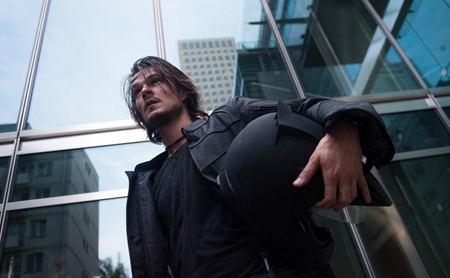
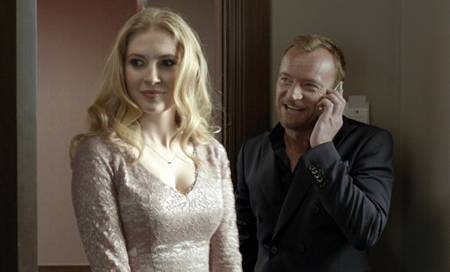
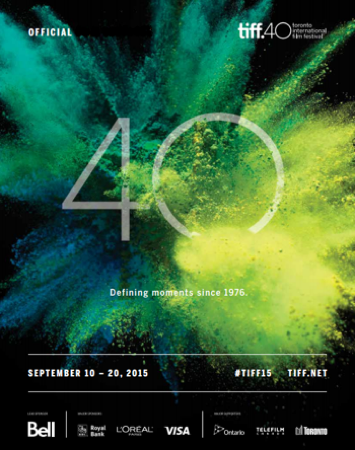
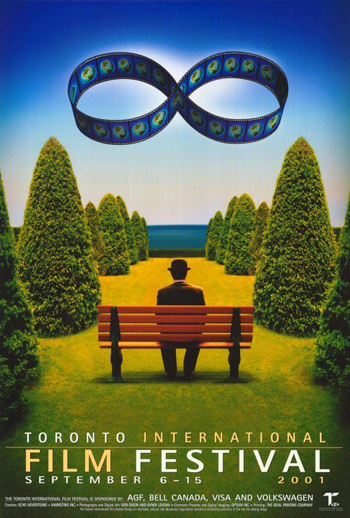
 Bodrog Robert
Bodrog Robert 


